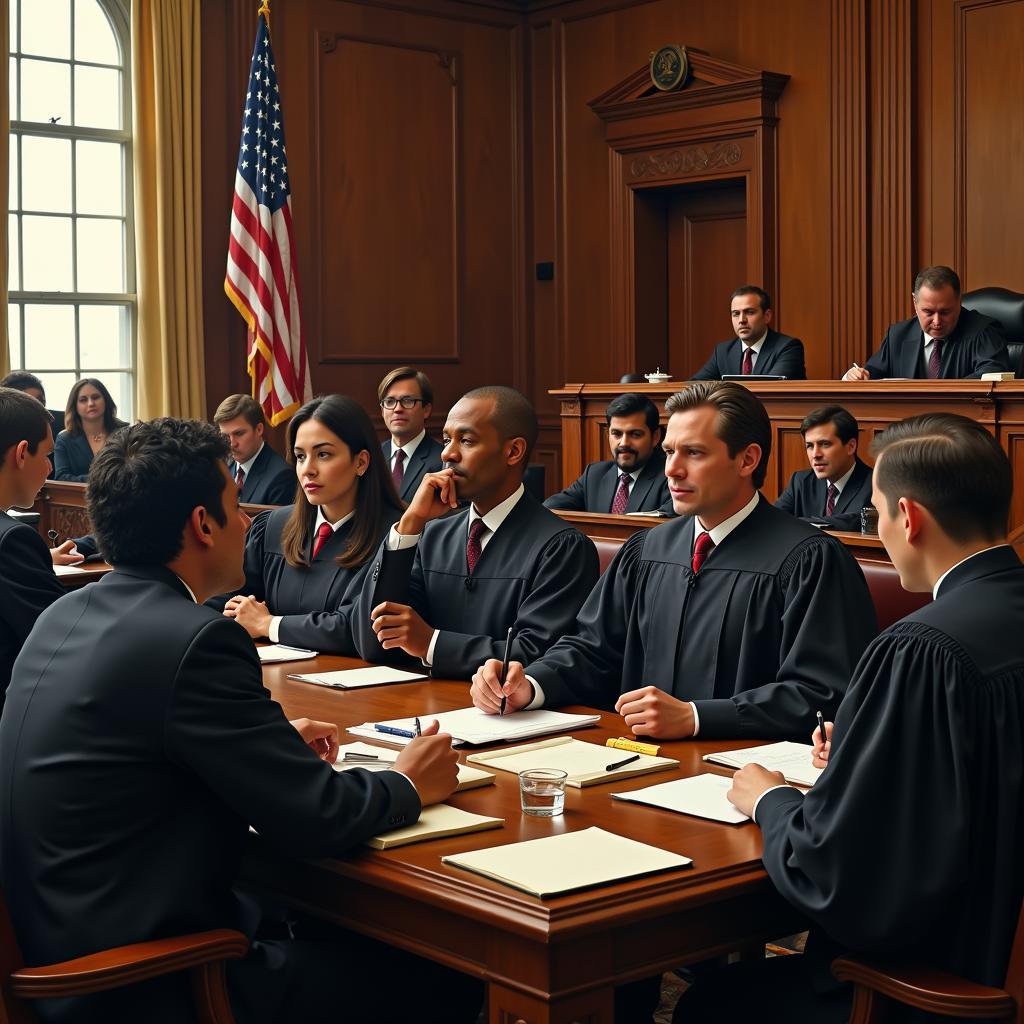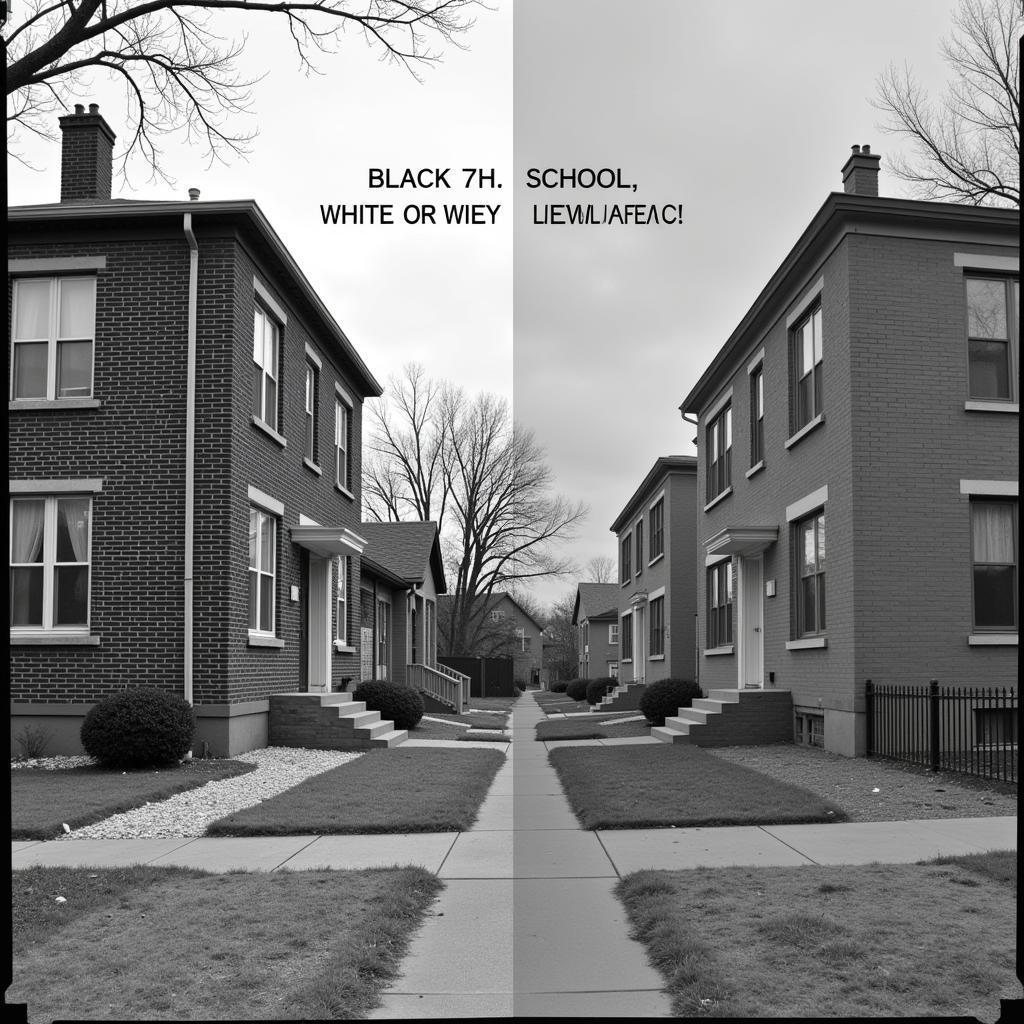The landmark 1954 Supreme Court case Brown v. Board of Education declared segregation in public schools unconstitutional, marking a pivotal moment in the fight for racial equality in the United States. This decision reverberated throughout the nation and continues to shape American society today.
 Supreme Court Justices Deliberating Brown v. Board of Education
Supreme Court Justices Deliberating Brown v. Board of Education
The court’s unanimous ruling in Brown v. Board of Education overturned the “separate but equal” doctrine established in the 1896 Plessy v. Ferguson case. This doctrine had allowed for racial segregation in public facilities, including schools, under the guise that separate facilities for Black and white Americans were equal in quality. However, the reality was far from equal. Black schools were chronically underfunded, lacked resources, and suffered from inferior facilities compared to their white counterparts.
This inequality in education had far-reaching consequences. It perpetuated a cycle of poverty and limited opportunities for Black Americans, hindering their social and economic mobility. The Brown v. Board of Education decision aimed to dismantle this system by guaranteeing equal access to quality education for all children, regardless of race.
 Black and White Children Attending Separate Schools
Black and White Children Attending Separate Schools
While the Brown v. Board of Education decision was a significant victory for the Civil Rights Movement, the path to desegregation was arduous and faced fierce resistance. Many Southern states employed delaying tactics and outright defiance to obstruct the implementation of the ruling. The struggle for equal access to education became a focal point of the Civil Rights Movement, leading to protests, demonstrations, and federal intervention to enforce desegregation.
The impact of Brown v. Board of Education extends far beyond the realm of education. It served as a catalyst for broader societal change, inspiring other legal challenges to discriminatory laws and practices. The decision fueled the Civil Rights Movement, leading to landmark legislation such as the Civil Rights Act of 1964 and the Voting Rights Act of 1965.
 Civil Rights Marchers Celebrating Desegregation Victory
Civil Rights Marchers Celebrating Desegregation Victory
The legacy of Brown v. Board of Education is complex and multifaceted. While significant progress has been made in dismantling legal segregation, de facto segregation persists in many communities. Socioeconomic disparities continue to affect educational opportunities for minority students, highlighting the ongoing need for policies that address systemic inequalities.
Despite the challenges, the Brown v. Board of Education decision remains a testament to the transformative power of law in advancing social justice. It serves as a reminder that the pursuit of equality is an ongoing process, requiring vigilance, advocacy, and a commitment to creating a society where all individuals have the opportunity to reach their full potential.